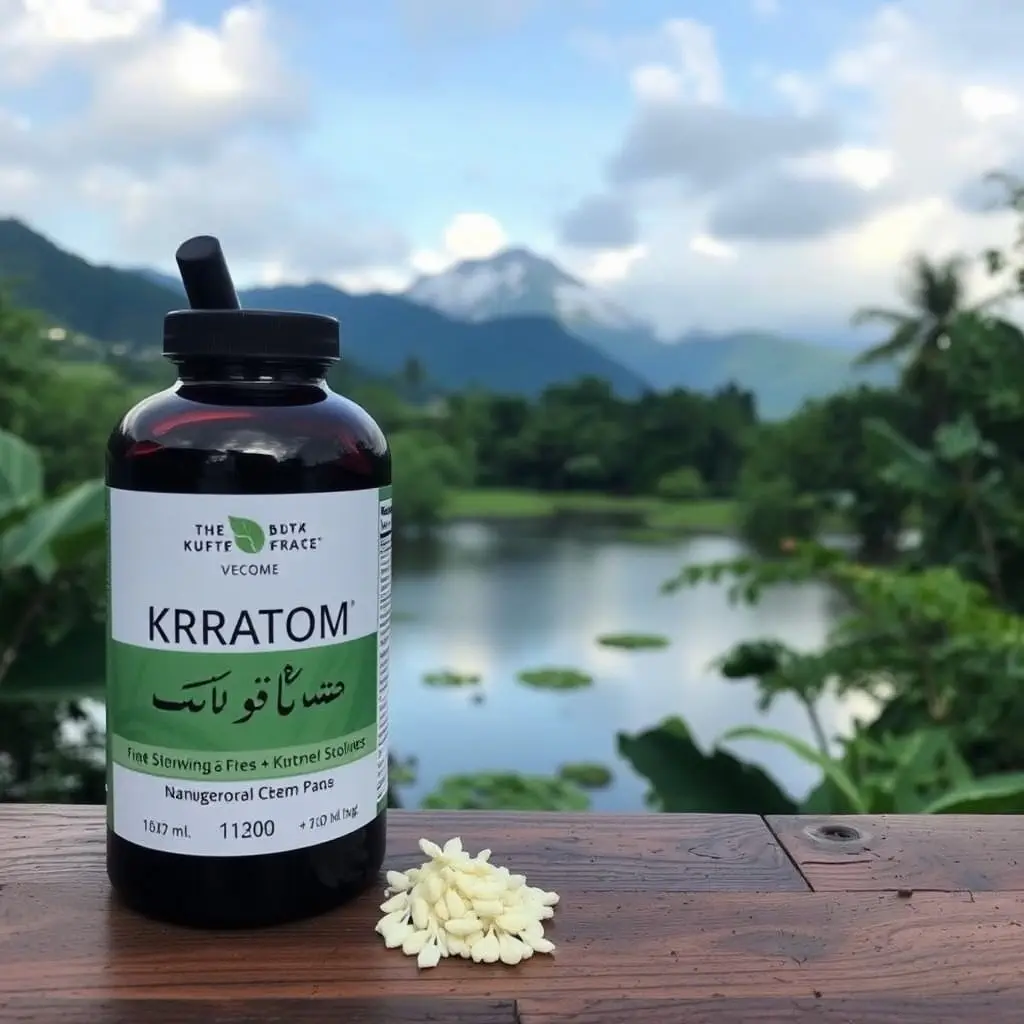Kratom, derived from the Mitragyna speciosa tree's leaves, has gained attention for its potential benefits in managing stress and anxiety. Its key alkaloids, mitragynine and 7-hydroxymitragynine, interact with opioid receptors in the brain, offering anxiolytic and analgesic effects. However, the legal status of kratom is inconsistent and varies by region, making it critical for users to be well-informed about local laws before using or traveling with it. For those considering travel with kratom, it's particularly important to verify its legal standing in intended destinations due to differing regulations across borders. The DEA's classification of kratom as a controlled substance in the U.S. complicates international travel with the substance, as countries have diverse policies on kratom import and export. Safety and compliance are paramount when using kratom; it should be packed in checked luggage for flights to avoid confiscation during security screenings. Always keep abreast of the latest regulations by consulting airlines and local embassies or consulates before embarking on travel with kratom supplements. If you plan to incorporate kratom into your daily routine for stress and anxiety management, it's essential to approach its use with caution and under medical supervision, considering individual responses to different strains can vary widely.
Exploring the potential benefits of kratom as a supplement to manage stress and anxiety, this article navigates its role in personal well-being. Kratom, derived from the leaves of the Mitragyna speciosa tree, has garnered attention for its effects on mood and stress responses. Understanding its impact is crucial before integrating it into daily life. We’ll delve into how kratom can be a part of your routine for stress reduction, while also addressing the legality and safety considerations, particularly when traveling with kratom. This exploration aims to provide a balanced view on the use of kratom supplements as an adjunct therapy for stress and anxiety management.
- Understanding Kratom's Role in Stress and Anxiety Management
- The Legality and Safety Considerations of Traveling with Kratom
- Integrating Kratom into Your Lifestyle for Stress Reduction and Anxiety Relief
Understanding Kratom's Role in Stress and Anxiety Management

Kratom, derived from the leaves of the Mitragyna speciosa tree native to Southeast Asia, has garnered attention in various health and wellness circles for its potential role in managing stress and anxiety. The alkaloids present in kratom, chiefly mitragynine and 7-hydroxymitragynine, interact with the brain’s opioid receptors, which can influence mood and pain sensation. This interaction is believed to be responsible for kratom’s anxiolytic and analgesic properties. When individuals experience stress or anxiety, kratom may offer a modulating effect, helping to alleviate symptoms by promoting a state of calmness and well-being.
It’s crucial for users to understand that while kratom can be a helpful supplement for some, it is not without regulation or potential side effects. The legal status of kratom varies across different countries and states, so it’s imperative to be aware of the laws in your jurisdiction before incorporating kratom into your wellness routine. Additionally, if you choose to use kratom as a supplement for stress and anxiety management, it should be done responsibly and ideally under the guidance of a healthcare professional. For those who travel, it’s important to research whether kratom is permissible in the destinations you plan to visit, as transporting kratom across borders can be subject to strict regulations and may not always be allowed. Always prioritize legal compliance and safety when exploring the use of natural supplements like kratom for health concerns such as stress and anxiety.
The Legality and Safety Considerations of Traveling with Kratom

When considering the use of kratom supplements to manage stress and anxiety, it’s crucial to address the legal and safety implications associated with traveling with this substance. Kratom, derived from the leaves of the Mitragyna speciosa tree, has garnered attention for its potential benefits, but its legal status varies across different jurisdictions, which can complicate travel plans. As of the current understanding, kratom is legal in many states within the United States, yet it remains a controlled substance under the DEA’s regulations. This classification can affect your ability to travel with kratom internationally, as countries may have distinct policies regarding its import and export.
For those looking to travel domestically or internationally with kratom supplements, it is imperative to research the specific laws of the places you intend to visit. In some countries, kratom is strictly prohibited and could lead to legal issues upon entry or exit. Safety considerations also extend to the method of transport; when flying, for instance, it’s advisable to adhere to airline regulations regarding carry-on items. Packing kratom in your checked luggage is often recommended due to the potential for security screenings to confiscate such supplements if placed in carry-on bags. Always ensure you have legitimate documentation for the substance, and be prepared to present evidence of its legal status in your home country. Additionally, awareness of the varying interpretations of kratom’s legality will help avoid complications at border controls. It’s always prudent to verify the most current regulations with both the airline carrier and the embassy or consulate of your destination before incorporating kratom supplements into your travel plans.
Integrating Kratom into Your Lifestyle for Stress Reduction and Anxiety Relief

Incorporating kratom supplements into your daily routine can be a viable strategy for reducing stress and managing anxiety, offering a natural alternative to other forms of medication. Kratom, derived from the leaves of the Mitragyna speciosa tree, has been traditionally used in Southeast Asia for its stimulating and analgesic effects. For individuals seeking stress relief, specific strains like Maeng Da or Bali are often favored due to their calming properties. It’s crucial to approach kratom with caution and consult healthcare professionals before integration, as dosage and strain can significantly impact one’s well-being. When used responsibly, kratom can help alleviate symptoms of anxiety and create a sense of tranquility.
When considering travel, the legality and transportation of kratom must be carefully navigated. Many countries have different regulations regarding kratom, so it’s essential to research and comply with these laws before packing kratom in your luggage or carrying it across borders. For those who find it necessary to travel with kratom, understanding the legal landscape is paramount to avoid legal complications. Additionally, when on the move, maintaining a consistent kratom regimen can be challenging but not impossible with careful planning and access to reputable sources. Whether at home or abroad, integrating kratom into your lifestyle for stress reduction and anxiety relief requires mindfulness of its effects, adherence to legal guidelines, and a commitment to personal well-being.
Incorporating kratom supplements into your routine can be a promising approach for managing stress and anxiety, as outlined in our exploration. It’s clear that understanding its role is crucial for those seeking natural alternatives to manage these conditions. Moreover, when considering travel with kratom, it’s essential to stay informed about its legal status to avoid any complications. By integrating this supplement responsibly into your lifestyle, you may find significant relief from the pressures of daily life. Always prioritize safety and legality when using kratom, especially during travel, to ensure a positive experience. With careful consideration and adherence to regulations, kratom can be a valuable addition to your wellness toolkit for stress reduction and anxiety relief.






